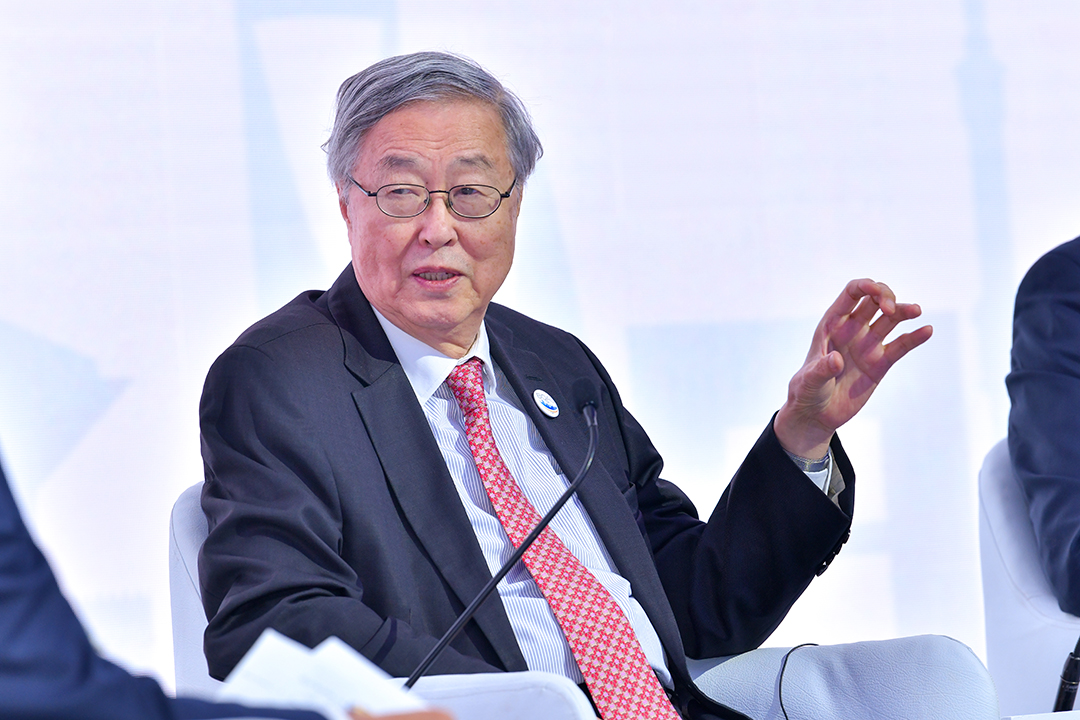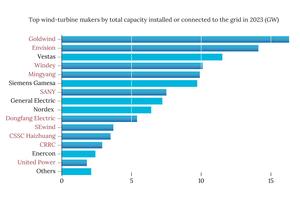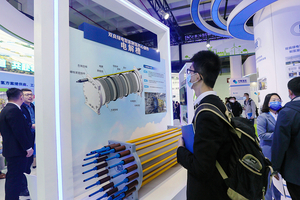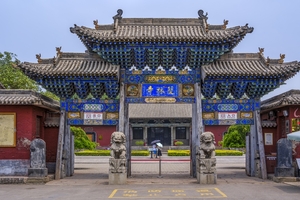Energy Insider: Asian Nations Urged to Steer Savings Into New Energy, Beijing to Rein In Battery Sector
Listen to the full version

In this week’s Caixin energy wrap, we analyze China’s biggest climate and energy news on policy, industry, projects and more:
● Asia urged to direct savings into new energy
● Jiangsu to require EV makers to recycle batteries
● Saudi Arabia to further cooperation with China
● China seeks to update battery industry rules
● Methanol-powered crane enters service in Shanxi

Download our app to receive breaking news alerts and read the news on the go.
Get our weekly free Must-Read newsletter.
- DIGEST HUB
- Zhou Xiaochuan, former governor of China's central bank, emphasized at the Boao Forum for Asia that Asian countries should use their significant savings to invest in renewable energy to aid the global transition.
- Jiangsu province in China has introduced draft rules mandating EV manufacturers to recycle batteries, addressing the growing need for battery disposal as early models reach end-of-life.
- Saudi Arabia expressed a willingness to enhance cooperation with China and other global economies to support the energy transition, particularly focusing on aiding Africa's energy challenges.
In the latest energy news from Caixin, significant developments in Asia's climate and energy sectors are highlighted, focusing on new policies, industry updates, and international cooperation [para. 1].
A key point of discussion is the call for Asian countries to invest their substantial savings into renewable energy. Zhou Xiaochuan, a prominent financial figure and former governor of China’s central bank, emphasized this at the Boao Forum for Asia. He suggested that establishing incentivizing mechanisms could help channel these funds into global renewable energy transition efforts [para. 1][para. 3][para. 4].
In Jiangsu province, new draft regulations have been introduced requiring electric vehicle (EV) manufacturers to take responsibility for recycling batteries. This initiative aims to address the pollution caused by solid waste and ensure sustainable practices as the earliest power batteries in China begin to retire. With projections indicating a significant increase in battery recycling needs by 2030, these measures are timely [para. 5][para. 6][para. 7].
Saudi Arabia announced its intention to deepen energy cooperation with China during the same forum. The focus is on supporting Africa's energy challenges as part of a broader effort to promote a global transition towards renewable energy sources following international agreements at COP28 [para. 8][para. 9].
Additionally, China is seeking public feedback on updated rules for the lithium battery industry aimed at enhancing product performance and safety standards. This update reflects an ongoing effort to manage production capacity effectively while meeting higher quality standards amid a backdrop of falling prices and competitive pressures within the industry [para. 10][para. 11].
Finally, an innovative development in Shanxi province saw the introduction of a methanol-powered truck crane—a first in the industry. This move aligns with efforts to reduce hydrocarbon emissions and promote alternative fuels like green methanol, which significantly cuts carbon emissions compared to traditional fossil fuels [para. 12][para. 13].
These developments reflect a dynamic shift in Asia's approach to environmental management and energy production, emphasizing sustainability and innovation in tackling global climate challenges [para. 1].
- Shanxi TZCO Construction Machinery Co. Ltd.
- Shanxi TZCO Construction Machinery Co. Ltd. has introduced a methanol-powered truck crane, a first in the industry. This crane can extend up to 44.5 meters and lift a maximum of 25 tons. Using methanol as fuel reduces hydrocarbon emissions by 40% compared to diesel, offering a more environmentally friendly alternative while enhancing energy security.
- PODCAST
- MOST POPULAR







 Sign in with Google
Sign in with Google
 Sign in with Facebook
Sign in with Facebook
 Sign in with 财新
Sign in with 财新